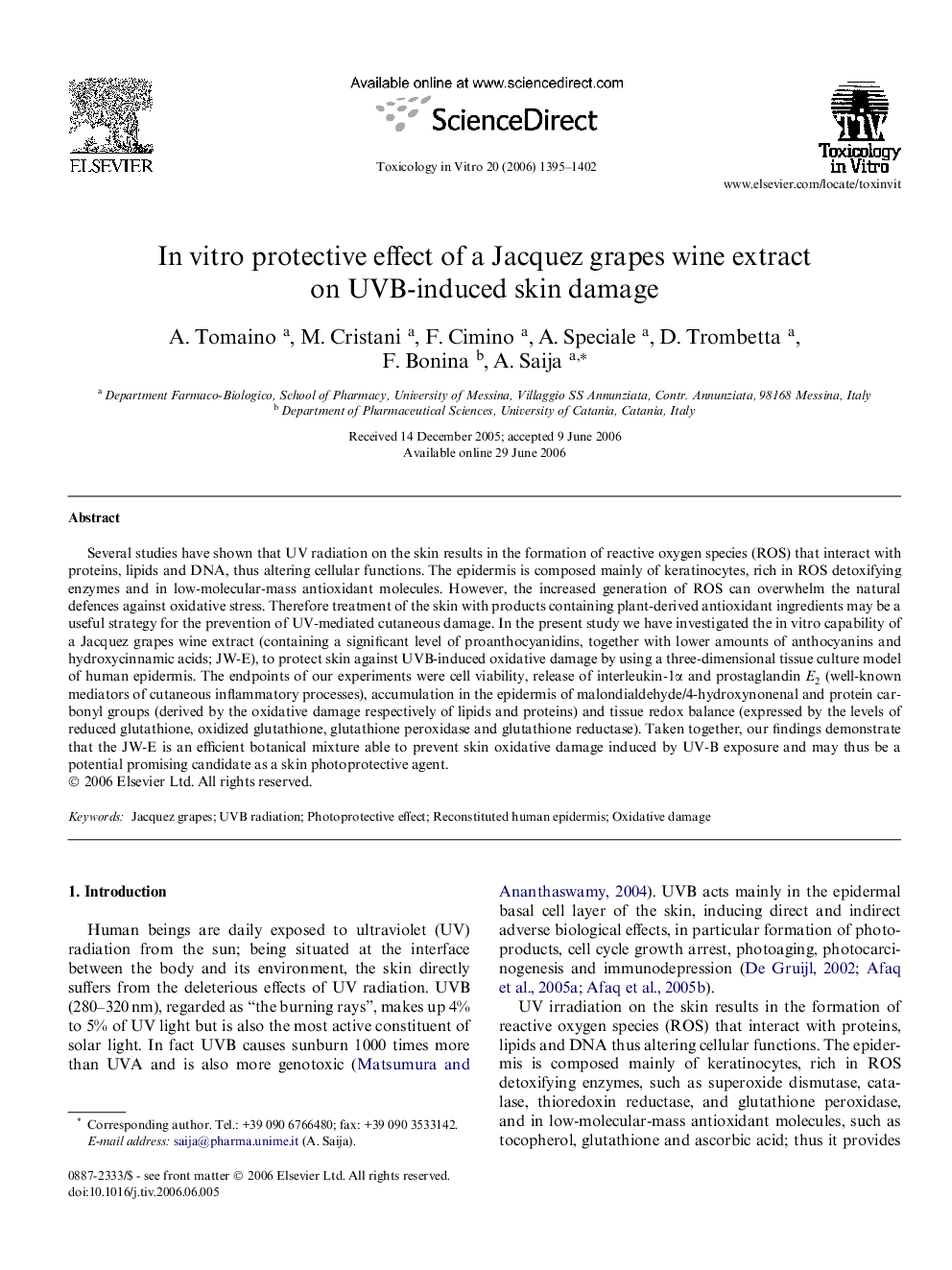| کد مقاله | کد نشریه | سال انتشار | مقاله انگلیسی | نسخه تمام متن |
|---|---|---|---|---|
| 2603581 | 1562716 | 2006 | 8 صفحه PDF | دانلود رایگان |

Several studies have shown that UV radiation on the skin results in the formation of reactive oxygen species (ROS) that interact with proteins, lipids and DNA, thus altering cellular functions. The epidermis is composed mainly of keratinocytes, rich in ROS detoxifying enzymes and in low-molecular-mass antioxidant molecules. However, the increased generation of ROS can overwhelm the natural defences against oxidative stress. Therefore treatment of the skin with products containing plant-derived antioxidant ingredients may be a useful strategy for the prevention of UV-mediated cutaneous damage. In the present study we have investigated the in vitro capability of a Jacquez grapes wine extract (containing a significant level of proanthocyanidins, together with lower amounts of anthocyanins and hydroxycinnamic acids; JW-E), to protect skin against UVB-induced oxidative damage by using a three-dimensional tissue culture model of human epidermis. The endpoints of our experiments were cell viability, release of interleukin-1α and prostaglandin E2 (well-known mediators of cutaneous inflammatory processes), accumulation in the epidermis of malondialdehyde/4-hydroxynonenal and protein carbonyl groups (derived by the oxidative damage respectively of lipids and proteins) and tissue redox balance (expressed by the levels of reduced glutathione, oxidized glutathione, glutathione peroxidase and glutathione reductase). Taken together, our findings demonstrate that the JW-E is an efficient botanical mixture able to prevent skin oxidative damage induced by UV-B exposure and may thus be a potential promising candidate as a skin photoprotective agent.
Journal: Toxicology in Vitro - Volume 20, Issue 8, December 2006, Pages 1395–1402